Rafforzare la ricerca, lo sviluppo tecnologico e l'innovazione
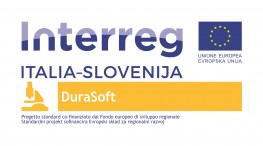
Promozione delle capacità d'innovazione per un'area più competitiva
L’obiettivo generale è conferire al legni di conifere autoctone e alle cannucce di palude una durabilità tale da renderne l'uso sostenibile e assolutamente compatibile con la conservazione dell’ambiente e con le esigenze del mantenimento del Wood cultural Heritage. In questo modo vi potrà essere una ricaduta economica sulle imprese sia diretta, legata alla produzione e commercializzazione dei prodotti, sia indiretta favorendo le attività di pesca, agricoltura, trasporti marittimi e turistiche.
Le attività di pesca e agro-pastorali hanno prodotto, nel corso di millenni, nelle Lagune italiane e negli altopiani sloveni tipologie abitative uniche nelle quali l’uso del legno è preponderante. Ad esse si associano infrastrutture lignee di servizio quali pontili, ormeggi, palificate e staccionate. La sussistenza di queste strutture e del bagaglio culturale ad esse associato è subordinata però ad una manutenzione costante non più economicamente sostenibile negli ambienti umidi e costieri dove la degradazione del legno è massiva e veloce. Per ovviare a ciò nell'ultimo secolo si è ricorso a tecniche di protezione impattanti o all'uso di materiali non idonei. Il progetto si propone quindi di testare alcune tecniche e prodotti innovativi, sviluppati e prodotti dai partner, che aumentano la durabilità delle specie legnose tradizionali. Il legno così trattato potrà essere usato nelle costruzioni tradizionali in ambienti Socio-ecologicamente sensibili, rendendone l’uso economicamente e ambientalmente sostenibile, all’interno del comprensorio alpino-marittimo Adriatico La compatibilità ambientale di queste tecniche sarà valutata alla luce delle più recenti conoscenze scientifiche oggetto di protocolli in uso sviluppati dai partner e trasferibili all’intera area di programma.
I risultati attesi sono puntuali benché per il loro raggiungimento sia necessaria un'alta expertise interdisciplinare.
Si tratta da una parte di conferire nuove qualità a materiali tradizionali per migliorarne le prestazioni e dall'altra di produrre nuovi materiali attraverso le modifiche chimiche del legno. Rendere un legno o una cannuccia resistente all'attacco biologico in ambiente umido in maniera comparabile a legni esotici o materie plastiche apre una quantità notevole di possibilità applicative e quindi nuove nicchie di mercato ed opportunità per le imprese. Noi ci siamo rivolti all'uso tradizionale e alla conservazione del patrimonio culturale in quanto elementi comuni e fondanti delle civiltà altoadriatiche, e abbiamo raccolto la sfida ambientale perché vogliamo proporre di prodotti rispettosi dell'ambiente e tali da poter essere usati in situazioni ambientali delicate. L'uso di biocidi in ambiente acquatico pone sfide particolari in quanto l'acqua dilava e veicola buona parte degli impregnanti tradizionali. Riuscire ad ottenere un prodotto che si lega al legno di conifera lo rende resistente e refrattario all'aggressione degli organismi acquatici, ma al contempo non impattante l'ambiente circostante significa offrire a pescatori ed agricoltori, piccoli imprenditori edili e ingegneri ambientali la possibilità di continuare ad usare il legno senza rivolgersi ad altri materiali, ed ottenendolo "a chilometro zero" direttamente dalle Alpi e dal Carso. Ottenere delle Phragmites che si degradano molto lentamente significa offrire la possibilità di tornare a ricoprire le case tradizionali, Casoni o Koce e Kozolci con tetti di canne in maniera assolutamente sostenibile recuperando professionalità e attività tradizionali che si stanno estinguendo e rimangono ancora vive in alcune enclavi lagunari e nel Delta del Danubio.
Partner capofila

Partner progettuale n.1
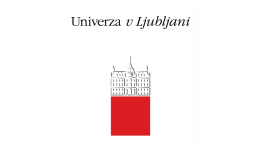
Partner progettuale n.2

Partner progettuale n.3
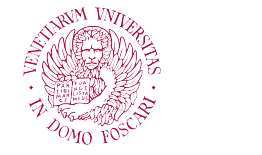
Partner progettuale n.4
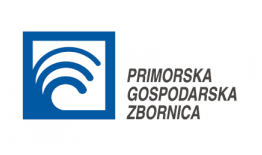
Partner progettuale n.5
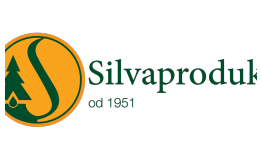
Partner progettuale n.6
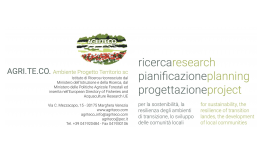
| Report ATT-AKT 5-6-7_merged_compressed.pdf ( 740 byte, pubblicato il 6 Luglio, 2023 - 12:04 ) | |
| Report ATT-AKT 10-11_merged_compressed.pdf ( 1 byte, pubblicato il 6 Luglio, 2023 - 12:04 ) | |
| Report ATT-AKT8_merged_compressed.pdf ( 719 byte, pubblicato il 6 Luglio, 2023 - 12:04 ) | |
| Report ATT-AKT9_merged_compressed.pdf ( 1 byte, pubblicato il 6 Luglio, 2023 - 12:04 ) | |
| Report ATT-AKT12_merged_compressed.pdf ( 658 byte, pubblicato il 6 Luglio, 2023 - 12:04 ) | |
| Report ATT-AKT13_merged_compressed.pdf ( 637 byte, pubblicato il 6 Luglio, 2023 - 12:04 ) | |
| Report ATT-AKT14_merged_compressed.pdf ( 834 byte, pubblicato il 6 Luglio, 2023 - 12:04 ) | |
| Report ATT-AKT15_merged_compressed.pdf ( 919 byte, pubblicato il 6 Luglio, 2023 - 12:04 ) | |
| Report ATT-AKT16_merged_compressed.pdf ( 1 byte, pubblicato il 6 Luglio, 2023 - 12:04 ) | |
| Report ATT-AKT17_merged_compressed.pdf ( 3 byte, pubblicato il 6 Luglio, 2023 - 12:04 ) | |
| Report ATT-AKT18_merged_compressed.pdf ( 415 byte, pubblicato il 6 Luglio, 2023 - 12:04 ) | |
| Report ATT-AKT19_merged_compressed.pdf ( 483 byte, pubblicato il 6 Luglio, 2023 - 12:04 ) | |
| Report WP-DS 3.3_merged_compressed.pdf ( 1008 byte, pubblicato il 6 Luglio, 2023 - 12:04 ) |
L’obiettivo generale del progetto è stato quello di testare la possibilità di conferire a legni di conifere autoctone e alle cannucce di palude (Phragmites austrails) una durabilità tale da renderne l'uso sostenibile e compatibile con la conservazione dell’ambiente e con le esigenze del mantenimento del Wood Cultural Heritage, attraverso l’utilizzo di opportuni trattamenti con agenti impregnanti e modificazioni chimico/fisiche del legno stesso. In questo modo è stato possibile fornire un giudizio critico sull’efficacia dei vari trattamenti che si è dimostrata essere variabile a seconda della tipologia di ambiente nel quale è stato esposto il materiale trattato.
Utilizzando legni di Abete rosso (Picea abies), l’Abete bianco (Abies alba), il Pino silvestre (Pinus sylvestris) e il Larice europeo (Larix decidua) sono stati prodotti sia campioni standard sia oggetti reali da testare trattandoli sia con varie formulazioni dell’impregnante a base di rame ®Silvanolin che tramite modificazioni termiche e acetilazione (in questo caso Pinus radiata).
Per le diverse tipologie di trattamenti sono stati prodotti i seguenti materiali: provini standard EN275, EN252, pali per i test in ambiente continentale, pali di diverse dimensioni per i test in ambiente marino, provini di diverse dimensioni per le analisi ecotossicologiche. Sono state realizzate panchine test composte da materiali diversamente trattati.
Sono stati condotti i seguenti test standard di durabilità su provini (trattati e controlli):
Sono inoltre state testate le performances di strutture in legno (panchine) costruite con i vari materiali oggetto di studio come pure quelle delle cannucce palustri trattate con impregnanti.
É stata considerata una pratica d’uso per la raccolta sostenibile delle cannucce di palude comprensiva della valutazione delle performances di cannucce trattate con gli impregnati in oggetto sia in ambiente terrestre che marino/sommerso.
La valutazione della compatibilità ambientale dei trattamenti è stata valutata mediante: